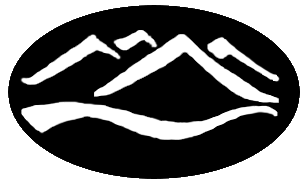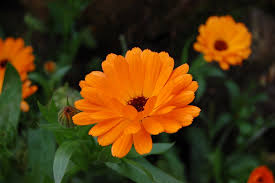What is Homeopathy?
Homeopathy is a natural, holistic system of medicine that uses highly diluted doses of substances to stimulate the body's own healing mechanism.
The use of homeopathic medicines (also known as remedies) is based on the discovery that a natural substance is capable of curing the same symptoms it can cause. By studying the symptoms produced when a healthy individual tests or "proves" a remedy, homeopaths can determine which symptoms that remedy is capable of curing. This is referred to as the Law of Similars or "like cures like."
A simple example of this principle can be seen with the common onion. Slicing an onion can cause symptoms of burning and watery eyes, as well as sneezing and a runny nose. Many hayfever sufferers have found dramatic relief from their burning, watery eyes, sneezing, and runny nose after taking the homeopathic remedy Allium cepa (the remedy made from red onion). Thus the substance that can cause symptoms can, as a remedy, also cure them.
References to the basic principles of homeopathy can be found in ancient writings and in the traditions of native medicines. These principles were re-discovered over 200 years ago by German physician Samuel Hahnemann (1755-1843) who developed them into a science, which he called Homeopathy – from the Greek words homoios (similar) and pathos (disease or suffering).
This new system of healing quickly spread throughout Europe and beyond. From Queen Victoria to the late Queen Mother, members of Britain's Royal Family have used homeopathy. By the late 1800s, homeopathy had become one of the most popular healing systems in North America, valued by both doctors and families using home remedy kits.
The popularity of homeopathy declined with the advent of pharmaceutical drugs and other modern therapies in the early 20th century. In recent decades, however, many people have turned to alternate forms of medicine to avoid side effects from conventional treatment. Today, the number of people using homeopathy is exploding throughout most parts of the world. It is now an accepted form of medicine in many European, Asian, and Latin American countries, the UK, and India.
What is Classical Homeopathy?
Classical homeopathy is based on the selection of a single remedy that most closely matches your symptoms at a particular time and then waiting to observe your response before administering another remedy. This method focuses on the underlying disturbance or dis-ease that causes the symptoms, rather than the symptoms themselves. Classical homeopathic treatment is sometimes referred to as constitutional prescribing.
What Are Homeopathic Remedies?
Homeopathic remedies are prepared from diluted substances such as plants, minerals, or animal products, which are repeatedly diluted and succussed (vigorously shaken). As this standardized process of dilution and succussion continues, the remedy becomes more powerful. This method is called potentization and it is the hallmark of all homeopathic remedies.
The extreme dilution used in the preparation of homeopathic remedies renders them non-toxic and safe for everyone of all ages, even during pregnancy and while breastfeeding.
There is no current scientific explanation for how these remedies work. Just as Aspirin was used as a painkiller for over 50 years while scientists continued to study how it works, homeopathy continues to be used successfully without a definitive explanation of the process behind it. Yet the practical health benefits experienced by millions of people and animals for over 200 years provide convincing evidence that homeopathic remedies are effective.
What Can Homeopathy Treat?
Homeopathy can be effective in treating virtually any health issue – from allergies to zoster (shingles) – regardless of whether the origin is physical, mental, or emotional. Your diagnosis is much less important than your unique symptoms. For example, ten people with severe headaches can describe ten different sets of symptoms, each requiring a different remedy. By matching a remedy to your particular symptoms, your homeopath is treating you, not the disease.
A well-chosen homeopathic remedy can produce dramatic improvement in acute conditions (e.g., viral infections, physical injuries) by significantly reducing the intensity of symptoms and recovery time. Many common children's complaints, such as bedwetting, colic, diaper rash, earaches, nosebleeds, and teething, also respond remarkably well to homeopathy.
Homeopathic treatment can be particularly useful in deep-seated, chronic conditions that have developed over a long period of time, frequently accompanied by a general deterioration of health. These include almost all well-known medical conditions – from acne, anxiety attacks, arthritis, and asthma to ulcers, varicose veins, warts, and yeast infections – to name a few. Many women find that homeopathy brings great relief during pregnancy and with menstrual irregularities, PMS, and menopause symptoms.
What Should I Know About Homeopathic Treatment?
Additional information about homeopathic consultations, fees, and insurance can be found on the Patient's Information page on the Canadian Society of Homeopaths' website.
Can I Learn to Use Homeopathy to Treat Myself or My Family, Friends, and Animals?
You can easily learn to treat simple first aid conditions such as cuts and burns, sprains and strains, insect bites and stings, and much more. You can also learn how to use homeopathy for minor acute conditions ranging from common colds to constipation, from indigestion to insomnia, from mastitis to morning sickness, from toothaches to travel sickness.
Before using homeopathic products, it is most important to understand the basic principles of homeopathy and how to select the correct remedies and potencies. You also will need to learn to recognize those conditions that can be safely treated at home and those requiring professional homeopathic or conventional medical care.
When administered correctly, homeopathy is a gentle, safe, and inexpensive method of health care for humans and animals alike. You should not, however, attempt to treat any serious or persistent conditions yourself, and if a minor complaint does not respond to your treatment, you should always seek professional help.
You can learn more about homeopathy by attending educational programmes sponsored by the West Coast Homeopathic Society and out members. Or for more in-depth information, you may want to consider one of the following:
Introductory lectures and study groups
Recommended reading lists
Self-study on the internet
Formal homeopathic training
Contact Us
For more information about learning to use homeopathy for home use and studying homeopathy as a career, please contact our office at 604-803-9242 or e-mail us at This email address is being protected from spambots. You need JavaScript enabled to view it..



